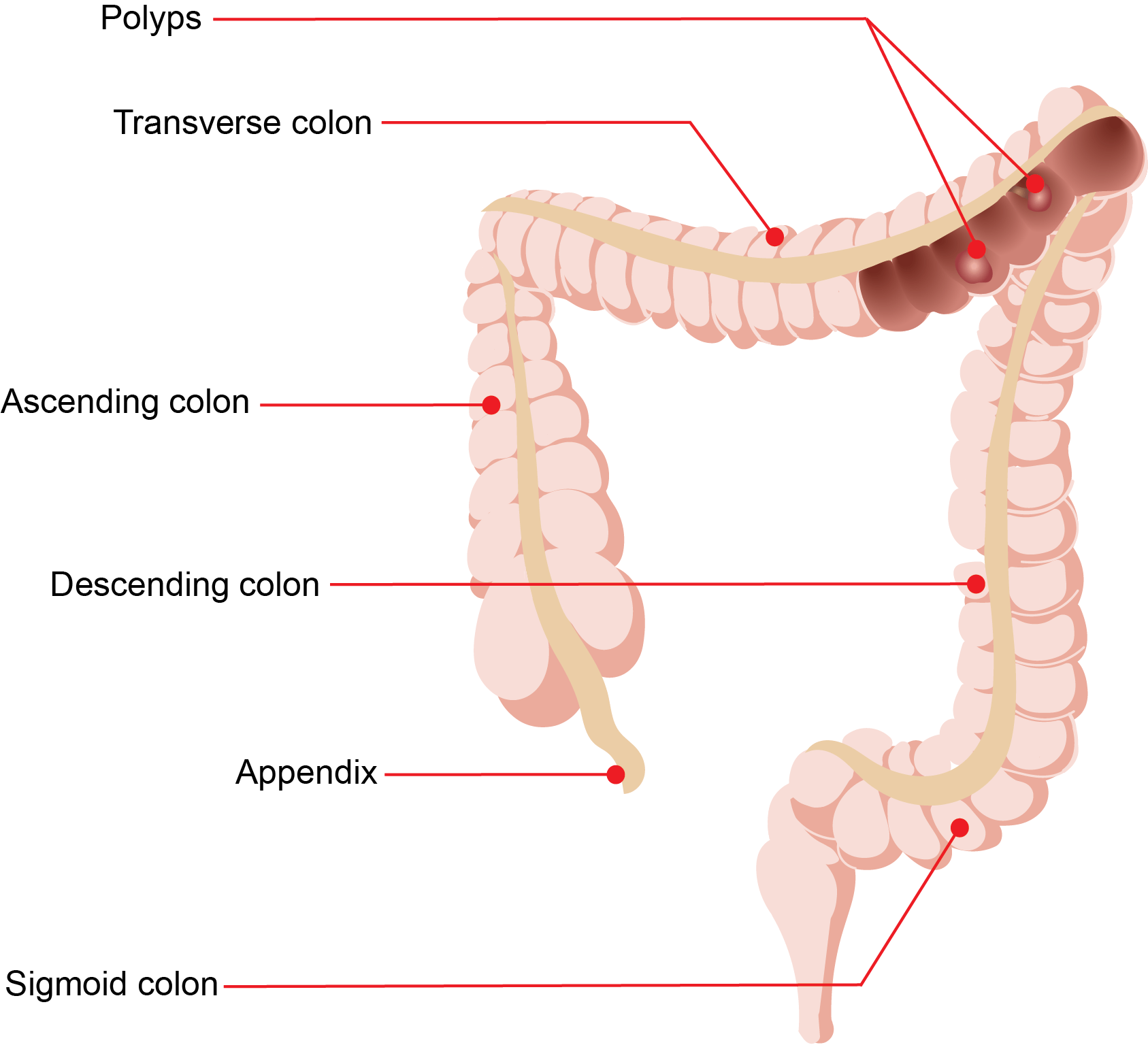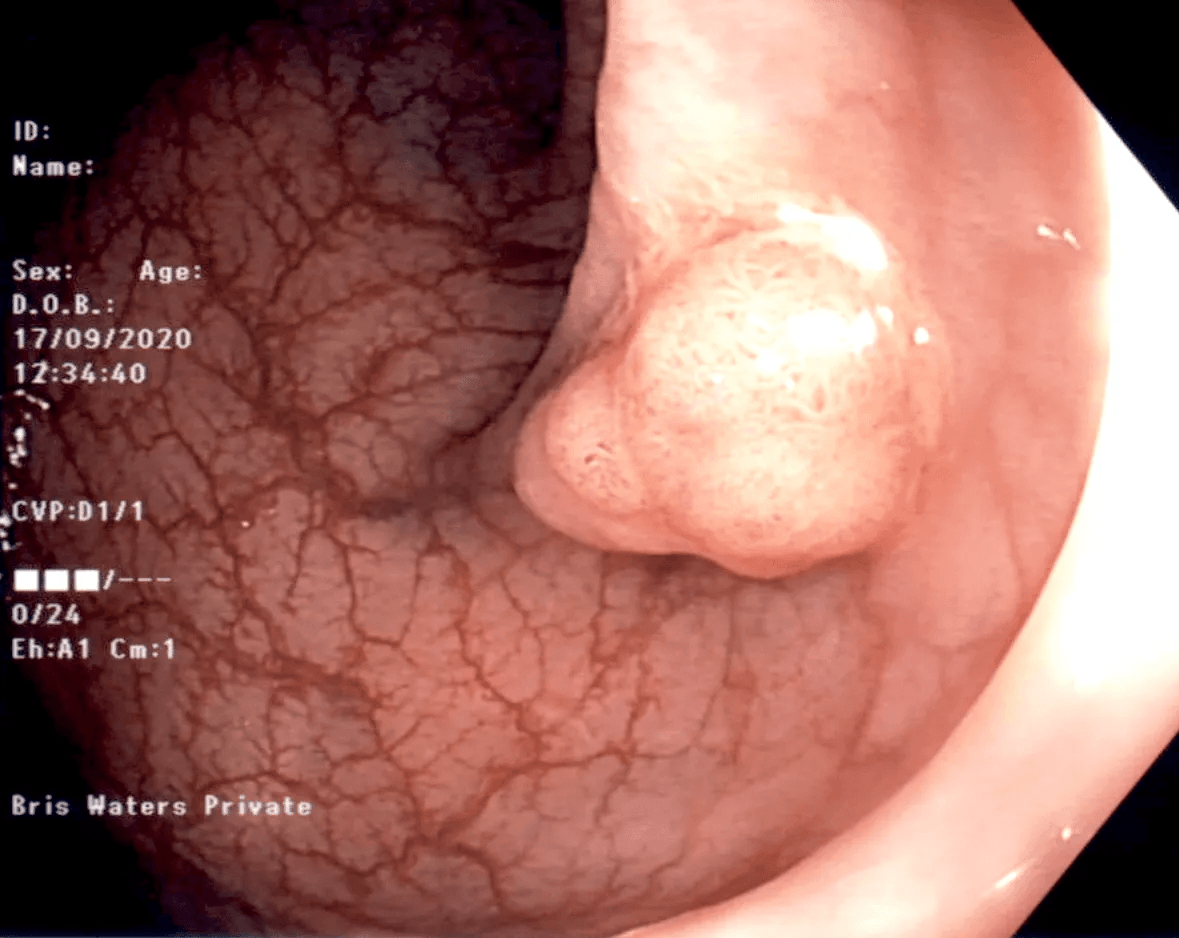COLONIC POLYPS
What is a colonic or bowel polyp?
A polyp is an abnormal, fleshy growth extending from the inner wall of the large bowel.
How common are colonic polyps?
Approximately half of all Australians are likely to develop a colonic polyp during their lifetime. The majority of these remain undetected.
Are polyps related to bowel cancer?
Polyps can be divided into 2 main types.
Adenomatous Polyps
Adenomatous polyps are also known as adenomas. Adenomas can sometimes develop into bowel cancer in a process that takes many years.
Hyperplastic Polyps
Hyperplastic polyps do not carry a risk of developing into cancer unless they occur in patients with a rare syndrome of multiple hyperplastic polyps
What is the treatment of colonic polyps?
Colonoscopy is currently the best way of detecting and treating polyps in the large bowel. If a polyp is seen during a colonoscopy, it may be removed using special instruments passed through the colonoscope. Sometimes a polyp may not be removed endoscopically because it is too large or too difficult to reach - in such cases surgery may be required.
Am I cured?
An individual polyp and any potential for future cancer from that polyp is usually cured by its removal (polypectomy). Once removed, the polyp is sent to a pathologist for examination under a microscope.
Occasionally cancer is found within the polyp and surgery may then be required to make sure all the cancer is removed from the bowel.
The importance of a polyp, however, does not end with its removal. A polyp identifies people at greater risk for developing polyps and cancers in the future.
Depending on the type, size and number of polyps removed, you will be advised on the necessity and timing of future colonoscopies, usually in 3 to 5 years.
What can I do to prevent polyps and bowel cancer in the future?
Be involved in bowel cancer screening.
Make healthy lifestyle choices such as exercise regularly, maintain a healthy weight, limit alcohol to 1 standard drink per day (or eliminate completely), quit smoking and enjoy a nutritious diet.
Related Information





